If you’re seeking a role as an administrative assistant in the medical field, you’ll need to craft a resume that strikes the right chord with hiring managers. After all, this job requires applicants to be detail-oriented, organized, and able to work under pressure in a fast-paced environment. Suppose you’re not currently working in the medical field but have previous experience as an administrative or secretarial assistant. In that case, that can be helpful when creating your resume for a new job search. Consider how your previous experiences might help set you apart from other job seekers when applying for administrative or clinical assistant roles. Working as an Administrative Assistant in healthcare is challenging because it is fast-paced and demanding. You will be responsible for taking care of the general administrative tasks required daily to keep things running smoothly at any healthcare facility, such as scheduling appointments, handling visitor check-in and check-out, managing workflow processes between departments, and updating patient records on software applications.
Medical Administrative Assistant Resume Example

Download This Medical Administrative Assistant Resume as PDF
Medical office administrator Resume Example
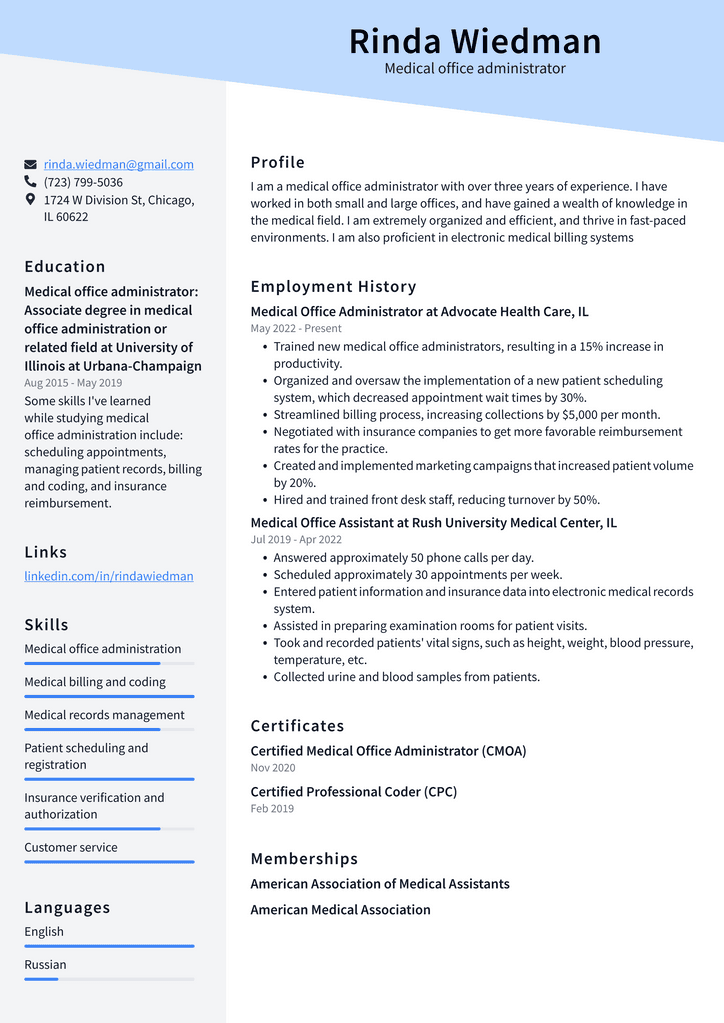
Download This Medical office administrator Resume as PDF
Medical billing manager Resume Example
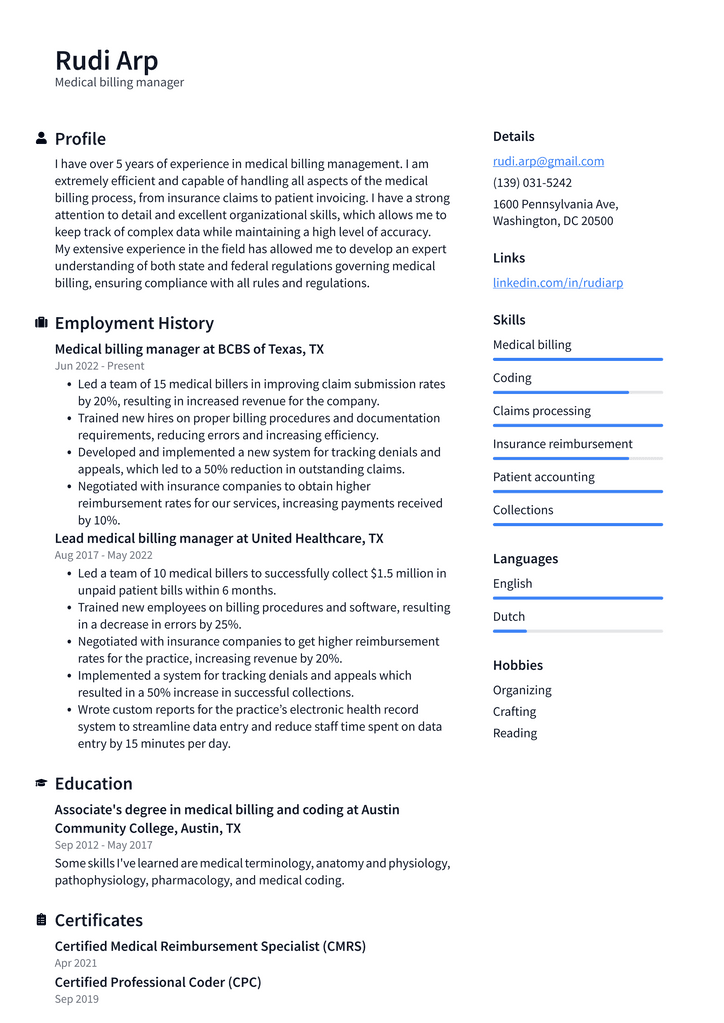
Download This Medical billing manager Resume as PDF
Medical office manager Resume Example
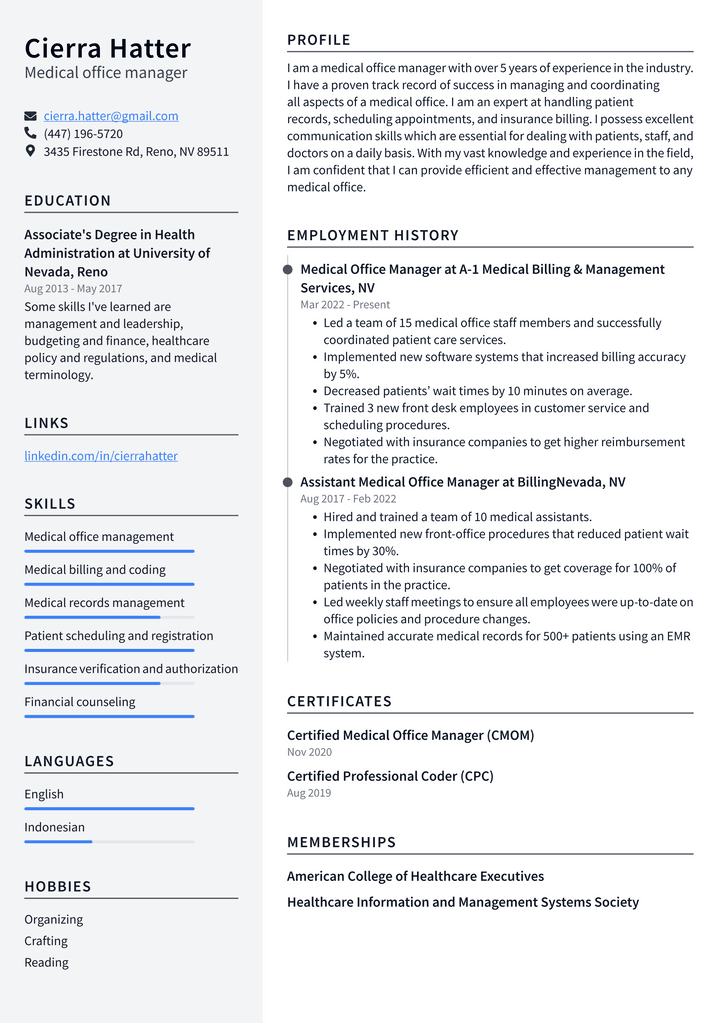
Download This Medical office manager Resume as PDF
Medical records administrator Resume Example
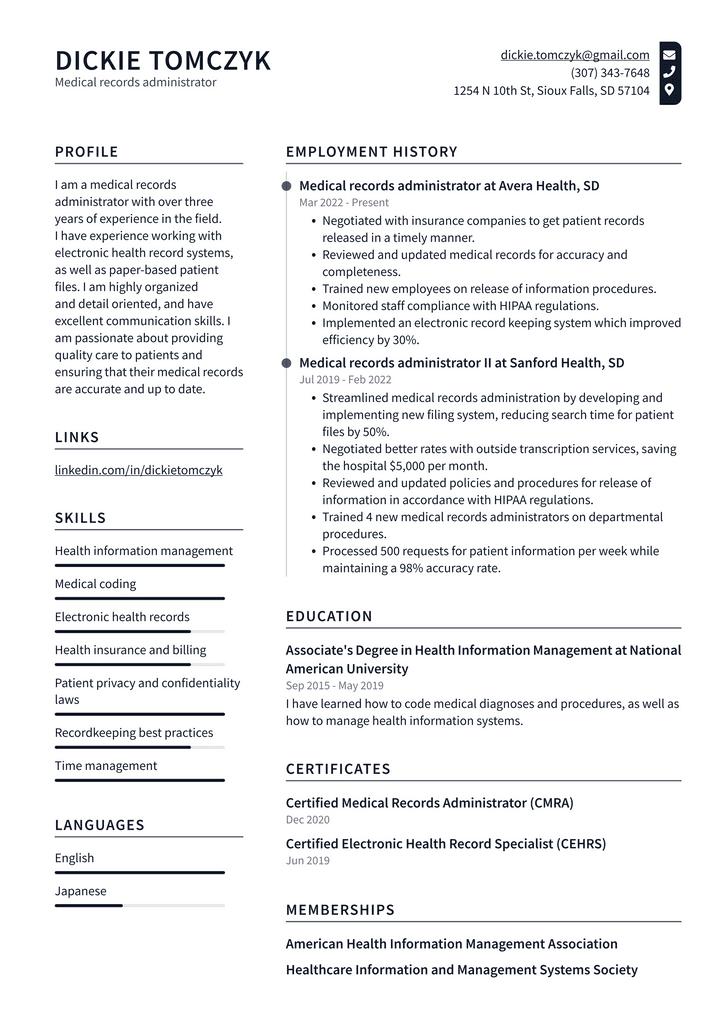
Download This Medical records administrator Resume as PDF
Health information manager Resume Example
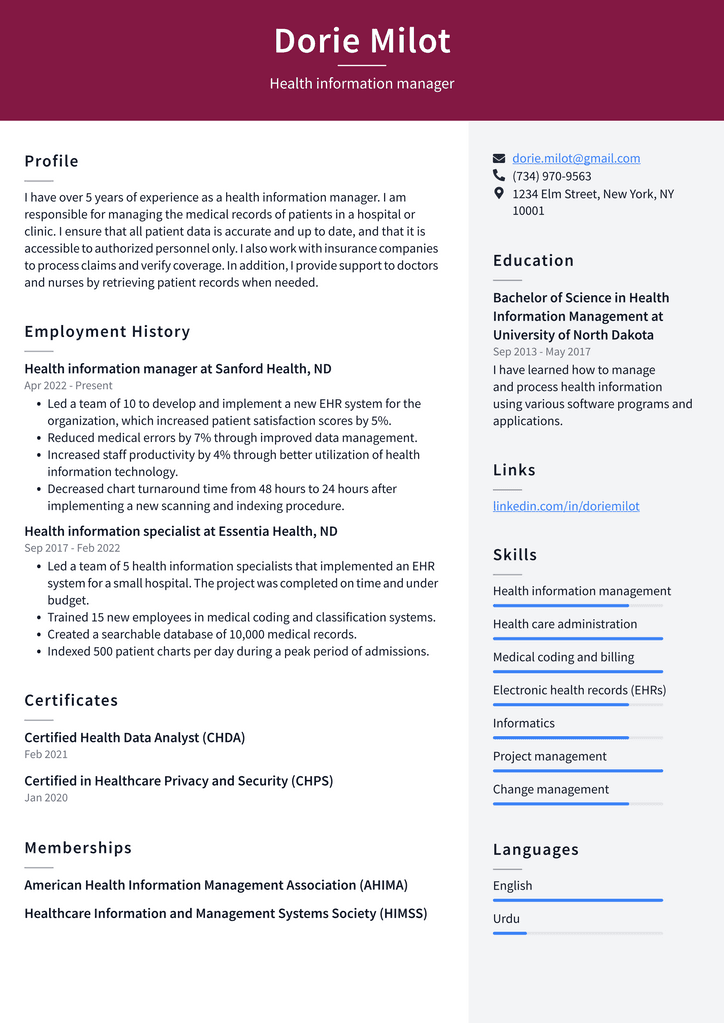
Download This Health information manager Resume as PDF
Medical office coordinator Resume Example
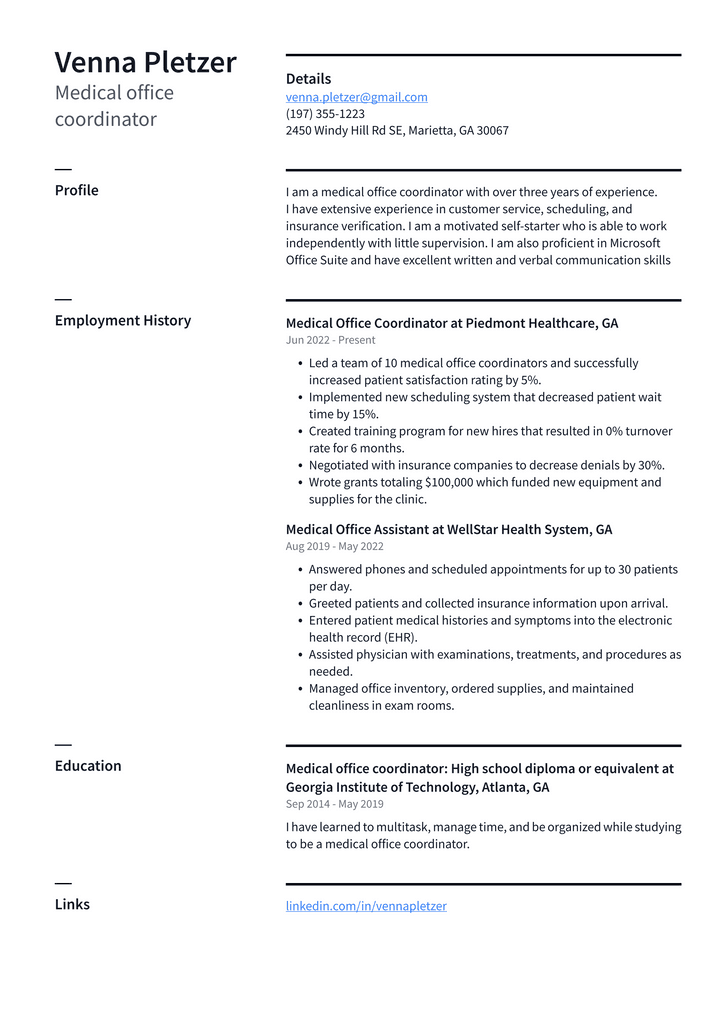
Download This Medical office coordinator Resume as PDF
Tips for Writing Your Medical Administrative Assistant Resume
When crafting your resume, include your employment history, any education or training you’ve completed, and any relevant volunteer experience. Be sure to include your contact information directly on your resume and your estimated salary requirement or wage expectation when having your employment history, including the name and location of the company where you worked, your job title, your employment start date, and your employment end date (if applicable). When writing your resume, consider how your experience and skills connect to the job description for the position you’re applying for. Highlight how your previous knowledge and skills make you the best candidate for the job. Make sure to include keywords from the job description in your resume. This will help your resume get picked up by most employers’ automated applicant tracking systems (ATS).
Summarizing your critical skills and traits
Before listing your responsibilities and experience, you should write a brief yet compelling summary of your skills, abilities, and qualifications for the job. This can be a short, stand-alone section at the top of your resume or can be integrated into your work experience section. This summary should be no longer than 10-20 words and written in the third person (e.g., “A detail-oriented, motivated administrative assistant with five years of experience”). This section should outline the top three to five skills and traits that make you the best person for the job. For example, suppose you’re applying for a job as an administrative assistant in a medical office. In that case, you might include “strong organizational and problem-solving skills” and “experience working in a fast-paced environment” in your summary. This is your opportunity to stand out from other job seekers, so make sure you use it wisely.
Include your technical and soft skills
In addition to your skills, it can be helpful to include your technical and soft skills on your resume. Technical skill is acquired through education or training, such as a degree or certification. Soft skills are interpersonal skills developed through everyday interactions with others, both professionally and personally. It can be helpful to include both types of skills on your resume to show hiring managers that you have a well-rounded set of both hard and soft skills. Some examples of technical skills you might include on your resume are computer proficiency or proficiency with software applications in your industry (e.g., Microsoft Office or MYOB). In addition, you can highlight soft skills on your resume, including practical communication skills (written or spoken), teamwork, and interpersonal communication.
Include your most relevant qualifications
If you have a degree or certification, it is essential to include it on your resume. If you don’t have a degree but have taken relevant classes on the side or have sought practical training, be sure to mention that on your resume. Please include the name of the program or course(s) you took, the date you completed it, and a summary of what you learned. If you have any relevant certifications, it can be helpful to include them. If you have significant experience in your field, it’s also beneficial to include your length of experience in the work you list on your resume. For example, if you have worked as an administrative assistant for five years, you might list your experience as “five years” or “five years experience as an administrative assistant.”
Skills to emphasize in your experience section
When writing your experience section, you can use the skills and traits you used in your summary section to organize your experience. This can help ensure your resume is well-organized and easy to follow. For example, depending on your industry, some skills commonly emphasized in the medical field are customer service, strong organizational and time management skills, and proficiency in medical terminology or software applications used in healthcare (e.g., MYOB, EMR/EMR, or PACS). Other skills to consider include problem-solving, teamwork (if you work in a team-based environment), and oral and written communication skills.
Conclusion
Remember, the goal of your resume is to get you an interview. Therefore, your resume should be tailored to each position you are applying for and highlight the skills and traits that make you the best candidate for the job. Keep these goals in mind as you write your resume, and follow these tips to create a resume that gets you the job you want.